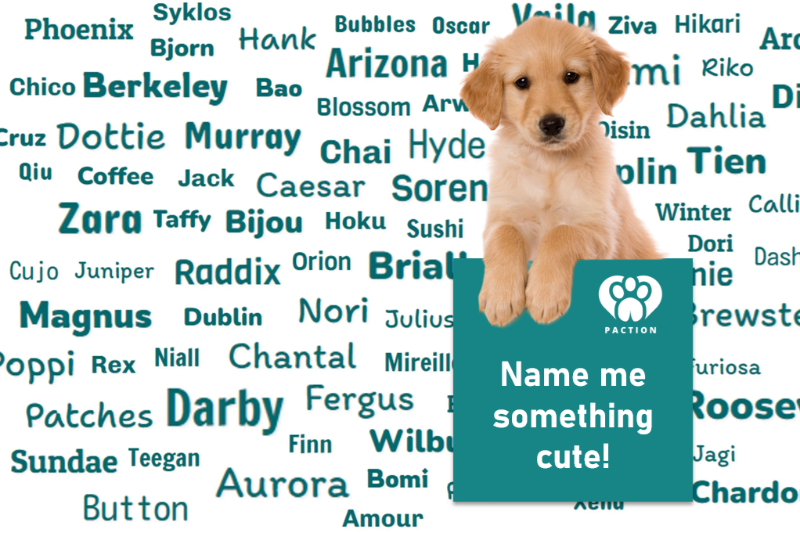Bichon Frise
Paw Prints 🐾

Find Bichon Frise Breeders Near You
Connect with certified breeders who have Bichon Frise puppies available.
Find Bichon Frise BreedersGet to Know Bichon Frises
- Royal Companions: The Bichon Frise has a long history as a beloved companion dog for European royalty and aristocrats. Originating from the Mediterranean region, these cheerful dogs became favorites in the courts of France, Italy, and Spain during the Renaissance. Their charming appearance and friendly nature made them popular lap dogs among the elite.
- Hypoallergenic Coat: Bichon Frises are known for their soft, curly, and fluffy white coat, which is considered hypoallergenic. This makes them a popular choice for people with allergies. Their coat requires regular grooming to maintain its texture and appearance, but their minimal shedding is a significant advantage for many dog owners.
- Playful and Cheerful Disposition: Bichons are known for their playful and cheerful personalities. They are often described as "living teddy bears" due to their affectionate and sociable nature. Bichons love to be the center of attention and are great with children, making them ideal family pets.
- Intelligent and Trainable: Bichon Frises are intelligent dogs that are eager to please, making them relatively easy to train. They excel in obedience and agility training and are often used in therapy work due to their gentle and friendly demeanor. Positive reinforcement and consistency are key to successful training with this breed.
- Resilient Survivors: Despite their noble beginnings, Bichon Frises faced hardship after the French Revolution, when many aristocrats were overthrown. These dogs found themselves on the streets, but their resilience and charm helped them survive as performers in circuses and street shows. Their ability to learn tricks and entertain people played a significant role in preserving the breed.
Breed History
The Bichon Frise is a small, cheerful breed that originated in the Mediterranean region, with its roots tracing back to the 14th century. The breed’s name, “Bichon Frise,” means “curly-haired small dog” in French, reflecting its distinctive fluffy coat. Bichon Frises were popularized in France and Spain as companion dogs, often seen in the homes of nobility and aristocrats. Their playful and affectionate nature made them ideal pets for families and individuals who sought a lively yet affectionate companion. This breed's adaptability and affectionate nature have allowed it to remain a popular pet for centuries.
Personality and Behaviour
- Friendly and Sociable: Bichon Frises are highly social dogs that love being around people. They tend to be affectionate and form strong bonds with their families. This breed thrives on human interaction and often seeks out attention and affection. They are generally good with children and other pets, making them an excellent choice for families or households with multiple animals.
- Intelligent and Eager to Learn: Bichon Frises are intelligent and quick learners, which makes training relatively straightforward. They enjoy being mentally stimulated and excel in activities that challenge their minds, such as obedience training, puzzle toys, and tricks. Their playful nature and willingness to learn make them an ideal candidate for training, though they can sometimes be a bit stubborn, so consistent, positive reinforcement is key.
- Playful and Energetic: Despite their small size, Bichon Frises are full of energy and love to play. They enjoy running around the house, playing with toys, and going for walks. Daily exercise is necessary to keep them healthy and to prevent boredom, which can lead to unwanted behaviors. Their playful spirit makes them entertaining and fun companions for individuals and families alike.
Care
- Exercise: Bichon Frises need daily physical activity to stay healthy and happy. While their small size means they don’t require extensive exercise, they do need regular walks and playtime to burn off their energy. A minimum of 30 minutes to 1 hour of exercise per day, divided into two or more sessions, is ideal. Interactive play, such as playing with toys or engaging in a game of fetch, can also provide both mental and physical stimulation.
- Grooming: The Bichon Frise has a soft, curly coat that requires regular grooming to stay in good condition. They do not shed much, making them a popular choice for people with allergies, but their coats can mat and tangle easily without proper care. Brushing their coat at least three to four times a week is essential to prevent matting and keep it looking neat. Professional grooming is recommended every 4 to 6 weeks to keep their coat trimmed and healthy. Regular grooming should also include nail trimming, ear cleaning, and dental care.
- Training and Socialization: Bichon Frises are intelligent and eager to please, making training relatively straightforward when done with patience and positive reinforcement. Early socialization is essential to help them develop into well-rounded dogs and prevent behavioral issues. Introducing them to different people, animals, and environments at a young age can help them become more adaptable and confident. They can be a bit stubborn at times, so training sessions should be kept short, fun, and engaging to maintain their interest.
Bichon Frise Summary
What to ask your breeder?
Here's a short summary of what you should be asking your breeder:
Bichon Frise Health Testing
| Screening | Considerations |
|---|---|
| Legg-Calve-Perthes Radiographic Evaluation | Optional but recommended |
| Cardiac Evaluation | Standard Congenital Cardiac Exam is recommended. |
| Eye Exam | Should have annual eye examinations |
| Patellar Luxation | Initial evaluation after 12 months, and annually thereafter. |
| Hip Dysplasia | Should be OFA Radiographic Hip Evaluation OR PennHIP Evaluation |
How Much Does It Cost to Own a Bichon Frise Per Year?
Determining the cost of owning a Bichon Frise is essential for responsible dog ownership. Use our calculator to estimate expenses, including food, grooming, veterinary care, and more.
The Ultimate Dog Cost Calculator
 Calculate Now
Calculate NowFrequently Asked Questions About Bichon Frise
When you talk to a breeder, you're not just asking “do you have available Bichon Frise puppies?” You're looking for a match in the process of rehoming a dog. As a prospective dog owner, you are assessing how predictable the dog's health, temperament, and long-term welfare will be and whether the breeder's practices reduce avoidable risk.
You should engage in a conversation about the following topics:
- Which health tests and genetic screening do you do specifically for Bichon Frise, and can I see the results?
- What do you do if a puppy develops a serious genetic condition? What contract, policies and support do you offer as a breeder?
- How are puppies raised from birth to 8+ weeks? Ask about socialization, philosophies on early neurological development, handling, and exposure.
The real cost of a dog isn't just the puppy price. After year one, the cost of a dog includes the predictable annual costs + the unpredictable “risk costs.” Your goal is to make the cost legible before you commit, as one of the top causes of surrendering a dog is not being able to afford the dog in later years.
To help you assess these costs, Paction has created the Ultimate Cost Calculator. You can also read an article written by a Paction breeder on why a prospective dog owner should focus on the ongoing costs of dog ownership and not “how much” the puppy costs.
Every dog breed has certain health issues that tend to occur more often, but what matters most is how predictable and preventable those risks are. For many breeds, common concerns include inherited conditions (such as orthopedic, eye, or cardiac issues) as well as lifestyle-related challenges like weight management, dental health, skin or ear problems, and anxiety.
Responsible breeders help reduce inherited risk through appropriate health testing, careful selection of breeding pairs, and transparency about family history. To understand more about responsible breeding programs that prioritize health and genetic screening of breeding pairs, check out Making Science Simple: Canine Genetics for Puppy Shoppers.
As an owner, you play an equally important role. Consistent preventive veterinary care, proper exercise and enrichment, healthy nutrition, and early screening can significantly improve long-term health outcomes.
Whether a Bichon Frise is right for you depends less on the breed itself and more on how well its typical energy level, temperament, and care needs align with your daily life. Important factors include your schedule and activity level, living environment, household dynamics (such as children, other pets, or allergies), and tolerance for noise or independence. Long-term fit also comes down to maintenance like grooming, training needs, and how often you travel or rely on outside dog care.
Use Paction's Dog Breed Matchmaker and Pup Time Estimator to find out more about what dog is right for you.


